
Tom Jones talks blues, roots music and his new album, Spirit In The Room
“The album reminds me of all the stuff I listened to when I was growing up in Wales," says Tom Jones of Spirit In The Room. It's the veteran singer's second collaboration with producer Ethan Johns, and like their first effort together, 2010's Praise & Blame, the gritty, stripped-down production is light years away from the big and brassy Las Vegas orchestra trappings that attended much of Jones' late '60s and '70s work.
"The music I listened to early on was on the BBC," says Jones. "There was big band music and pop, but occasionally we would hear a more raw sound, and those were the blues records, the gospel records and some country things, too. Tennessee Ernie Ford doing Catfish Boogie and Blackberry Boogie – to me, records like that were the start of rock ‘n’ roll. That stuff caught my ear."
Jones and multi-instrumentalist Johns (the latter is the son of noted producer Glyn Johns) assembled a tight band of musicians (Richard Causon on piano and vintage keyboards, Ian Jennings and Sam Dixon on bass, and drummer Stella Mozgawa) and recorded songs in a loose, leisurely fashion at Peter Gabriel's Real World Studios in Bath, England. "The whole thing was quite different from how we used to make records," says Jones. "We used to do three songs in three hours, with everything prepared beforehand. With Ethan, we went in and recorded from scratch – it was very free and open. And Ethan is a player, too, so I was talking to one of the people who would be making the music."
The songs, a haunting, soul-enlivening blend of Americana and blues-tinged covers by such names as Leonard Cohen, Bob Dylan, Blind Willie Johnson, Paul McCartney, Odetta, Paul Simon, Richard Thompson and Tom Waits, among others, (along with the Jones/Johns-penned Travelin' Shoes, based on an original by Vera Hall-Ward) were picked by artist and producer with an eye towards, as Jones puts it, "getting down to the nitty-gritty. You can do that with roots music – there's nothing artificial in it."
Jones' minimalist, unvarnished approach to recording with Johns has been compared to Johnny Cash's late-period work with Rick Rubin, and the singer acknowledges the similarities. "With Johnny Cash, God bless him, he was doing that near the end of his life," says Jones. "The way that they made those records is sort of along the same lines. I think the beauty in what Johnny and Rick Rubin did is that, once you take the bare-bones approach, you get into the lyrics of the songs, the essence, without big arrangements trying to sway you. It really suits me."
Spirit In The Room will be released in the US on 23 April (it came out in the UK last year). On the following pages, Jones discusses the selection and recording process of seven of the album's 13 cuts.
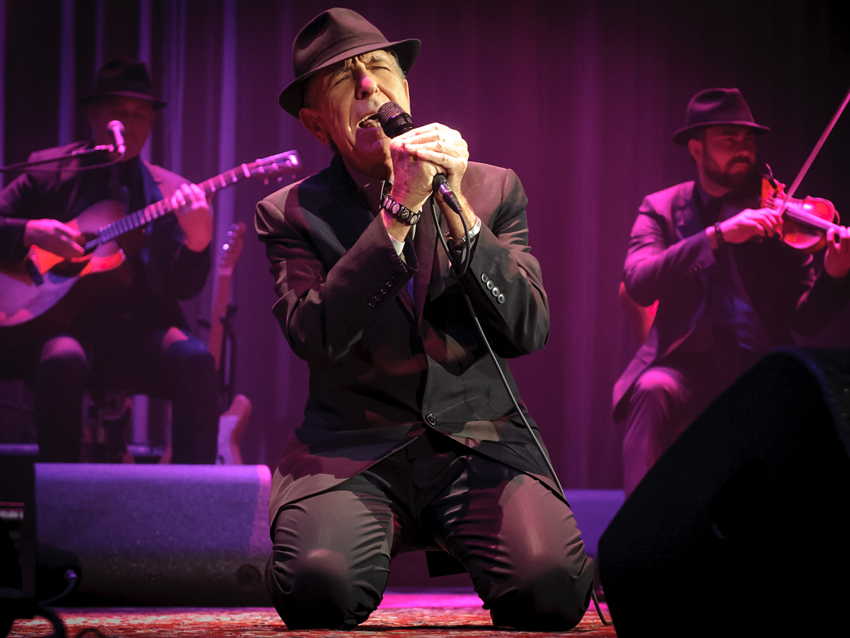
Tower Of Song
“I love Leonard Cohen; he’s an incredible writer. With this song, I connected with it as I would with anything when I hear it and say, ‘Hey, that could be me.’ I’m singing about myself, my experiences, what I feel. That’s what I thought when I heard Tower Of Song. ‘My friends are gone and my hair is gray.’ Well, that’s true: Most of the friends I grew up with are dead, and my hair is gray. Those words really hit home.
“When we recorded our version, Ethan said, 'I want to get this as live as possible.' The microphone was wide open; it wasn’t a directional mic. There’s a great room sound, very ambient, as if you’re walking in on a band rehearsing.
“Of course, you get a good sound when you’re at Peter Gabriel’s Real World Studios. We did both this album and Praise & Blame there. A very natural-sounding room.”
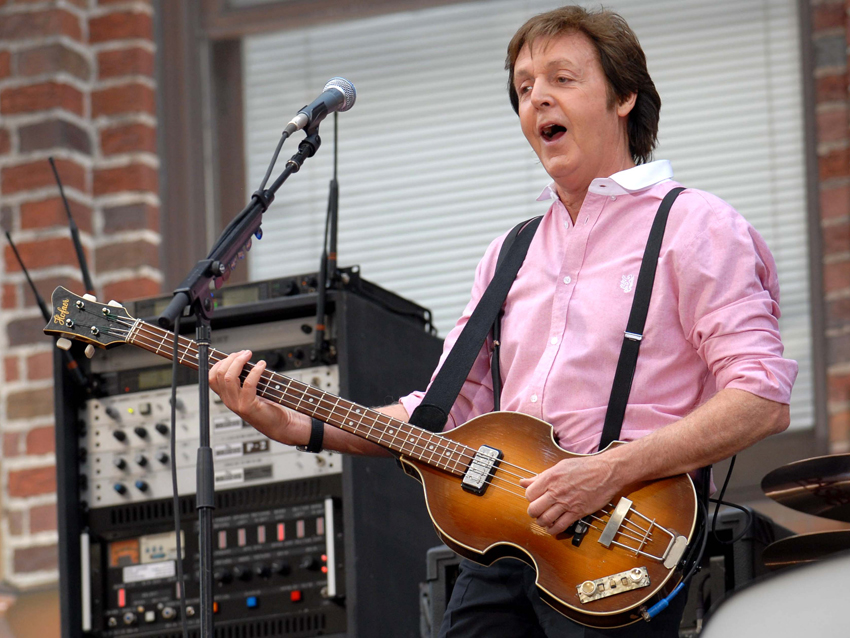
(I Want To) Come Home
“I know Paul, and I’ve asked him over the years to write me a song. He’s tried it – he sent me one, but I was recording with Wyclef Jean, and the song he wrote me didn’t fit in with what we were doing. But I’ve always wanted something by Paul McCartney.
“Actually, here’s a story: When he wrote The Long And Winding Road, he gave it to me. I was talking with him one night in London way back, and I said, ‘I’d love for you to write me something, Paul,’ and he said, ‘I will.’ But what happened was, we had a record coming out, and I couldn’t stop it. Paul wanted me to do The Long And Winding Road, but he wanted it to be my next single. So we just couldn’t do it.
“From then, any time I see Paul, I always ask him about a song. Ethan heard this one, and he loved it. Everything that Paul has done is so popular, but this song, which was in a movie, wasn’t that well known.
“I listened to it, and I said, ‘That’s fantastic.’ Again, it applies to me. It could be me, my life. The production is minimal, and it works very well with what we wanted to do with it.”
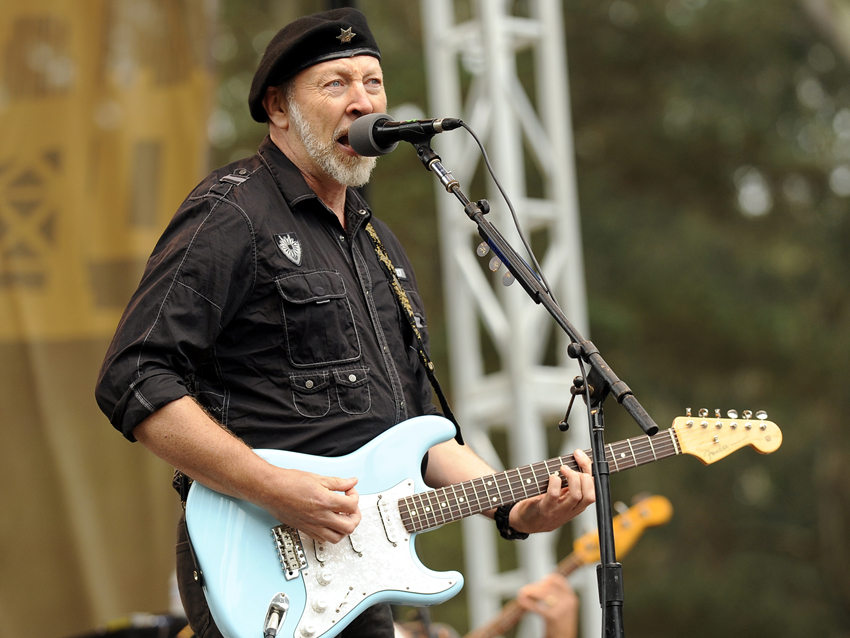
Dimming Of The Day
“I’ve sung Richard Thompson songs before; I’ve always thought that he was a powerful writer. When we were getting ready to do this album, I definitely wanted to see what else of his might work. A few other people have recorded Dimming Of The Day, so I listened to what they did to see if I could take it somewhere else, which I think I did.
“We put a very simple beat to it, a natural style of production. The key to this song, and this whole album, is that you don’t want to over-arrange. That gets in the way of the song, gets in the way of what I’m trying to put across. For me to deliver a song like this well, it’s got to sound like I wrote it myself. Getting the right production can make a big difference.”
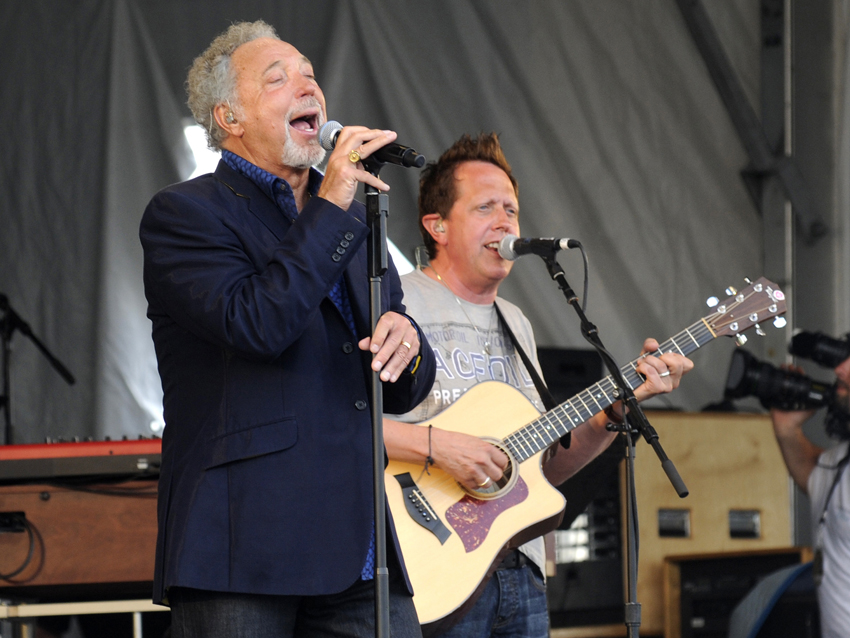
Traveling Shoes
“Ethan and I were listening to some old blues songs, and I said, ‘Why don’t we elaborate on some of these?’ These kinds of songs have been done before, but the trick is to move things around; you take what was originally there in some form and change the pieces here and there. With a lot of blues, it’s hard to even say what the original of something is sometimes. They’ve been done and redone so much, but that’s how they continue to live on.
“I play guitar when I write, if it’s in a certain key. I’m not a great guitar player, but I do enjoy playing, and I know a few keys. Ethan is a far better guitarist than I am, so I let him take over in the recording."
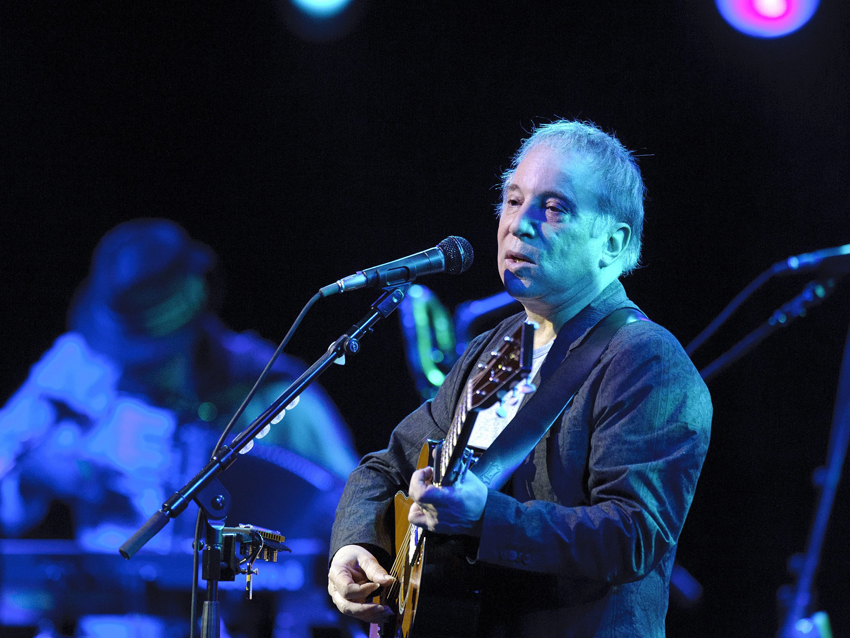
Love And Blessings
“I know Paul. I’ve listened to a lot of his songs, and I knew that I wanted to do something that he wrote. He’s such a beautiful writer. Ethan played this one for me and asked me what I thought, and I said, ‘I love it.’
“We did it in the same rhythmic pattern as Paul, but we changed it quite a bit in the middle section – he had himself singing with the background vocals. Ethan played a real rock guitar, quite bluesy, which sounds incredible.
“I’m a big guitar fan, especially when it comes to the blues. Ethan is a great blues player. He’s got a bloody wall full of guitars. What's great about him is, you can talk to him about your ideas on how the guitar should go, and he gets it. He’ll try things out until you say, ‘That’s it. That sounds good to me.’”
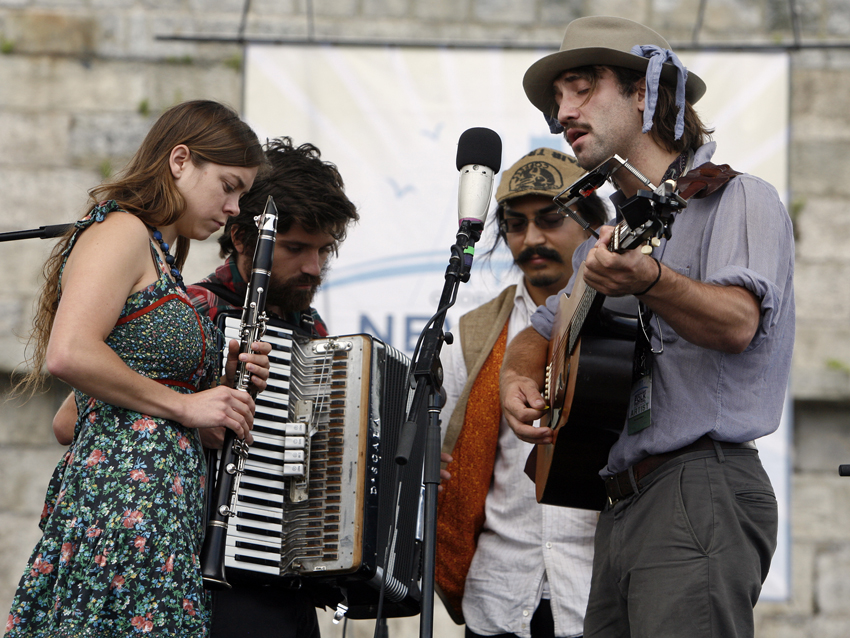
Charlie Darwin
“It’s a message song, but it's not morbid. It’s telling you about the world and the kinds of things that Charles Darwin was warning us about. I’m a historian – I love history – and when I heard the part about the Mayflower coming across, I could see it. These desperate people looking for a better world... It struck a chord in me.
“When I did it, it sounded so real. There’s a big piece in the song – it happens twice – and I said, ‘I hear English church singers in these parts.’ It’s not a gospel choir; it’s an English church choir. So that’s what we did – we went to a church and recorded a choir singing those parts. I had that sound in my mind, and I’m so pleased that we got it across. We kept the song, but we brought it somewhere new.”
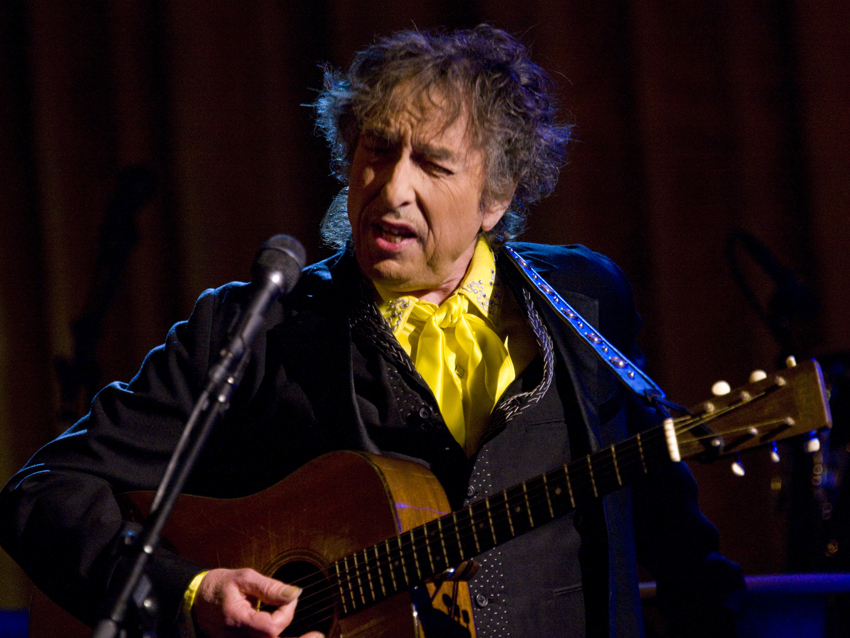
When The Deal Goes Down
“To me, it had the feeling of an old music hall song. That’s how I heard it. It reminded me of what I used to hear in pubs when I was growing up in Wales. The people would sing songs that were much older than them, things from the First World War and even before that. It had a structure as if it was from a very different time.
“That’s the sound we tried to get. We did it with a old pipe organ – you have to pump it with your feet as you play. That’s Richard Causon playing it, and he sounds incredible.
“I’ve never met Bob Dylan. For some reason, we’ve never been in the same place at the same time. I’ve always been a fan. He’s one of the best lyricists who ever lived. It’s never flowery with Bob Dylan – he says just what he means. On the Praise & Blame album, I did What Good Am I?, which he wrote. You can take a Dylan song and do it your own way, because the way Bob records, he does it very sparse. God bless him.”
Joe is a freelance journalist who has, over the past few decades, interviewed hundreds of guitarists for Guitar World, Guitar Player, MusicRadar and Classic Rock. He is also a former editor of Guitar World, contributing writer for Guitar Aficionado and VP of A&R for Island Records. He’s an enthusiastic guitarist, but he’s nowhere near the likes of the people he interviews. Surprisingly, his skills are more suited to the drums. If you need a drummer for your Beatles tribute band, look him up.
